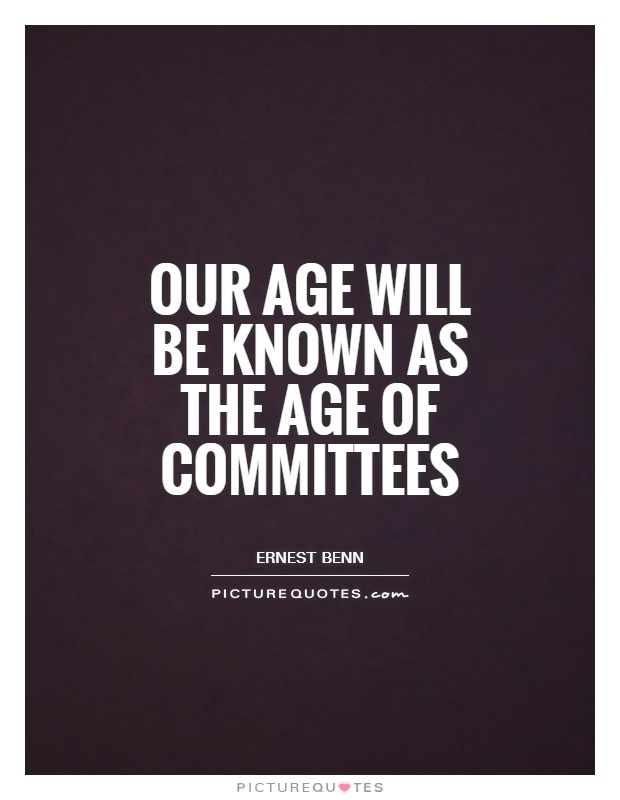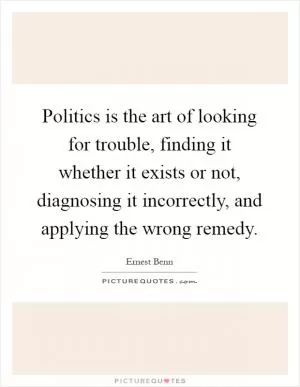Our age will be known as the age of committees

Our age will be known as the age of committees
In the context of Ernest Benn, a British publisher and writer known for his works on politics and economics, the statement "Our age will be known as the age of committees" takes on a particularly poignant meaning. Benn was a staunch advocate for the importance of individual thought and action, and he often criticized the bureaucratic nature of government and society. In his view, the rise of committees and bureaucratic structures was a hindrance to progress and innovation, stifling individual creativity and initiative.Benn believed that committees were often used as a way to avoid making difficult decisions or taking responsibility for one's actions. Instead of empowering individuals to think for themselves and take action, committees tended to promote conformity and groupthink. This, in turn, led to a lack of accountability and a dilution of individual responsibility.
In Benn's view, the age of committees represented a shift away from the values of individualism and self-reliance that had been the foundation of Western society. Instead of encouraging individuals to think critically and act independently, committees promoted a culture of consensus and conformity. This, Benn argued, was detrimental to the progress of society as a whole, as it stifled innovation and creativity.
Furthermore, Benn believed that the rise of committees was a symptom of a larger trend towards centralization and bureaucratization in society. As power became increasingly concentrated in the hands of a few, decision-making processes became more complex and convoluted. This, in turn, led to a proliferation of committees and bureaucratic structures, which only served to further entrench the status quo.










 Friendship Quotes
Friendship Quotes Love Quotes
Love Quotes Life Quotes
Life Quotes Funny Quotes
Funny Quotes Motivational Quotes
Motivational Quotes Inspirational Quotes
Inspirational Quotes